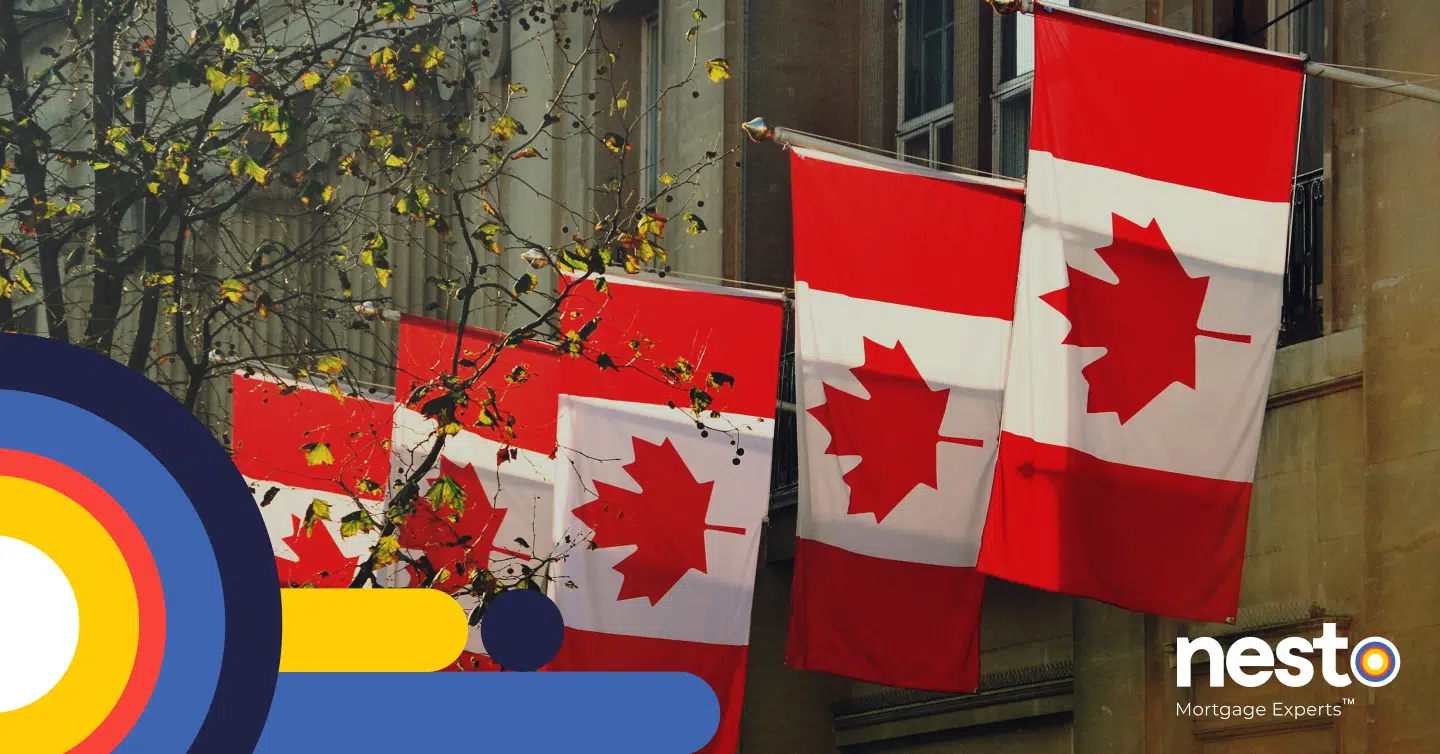10 Questions To Ask Your Mortgage Broker or Lender

Getting a mortgage is one of the most significant financial decisions Canadians make, yet many borrowers sign without fully understanding the fine print. Asking the right questions upfront can save thousands of dollars in interest, fees, and penalties over the life of a mortgage.
A mortgage lender or broker should be more valuable than a rate provider, helping you find the right balance between affordability, flexibility, and long-term financial security. Whether you’re a first-time buyer, renewing, or refinancing, knowing what to ask is the key to avoiding costly surprises. We’ve compiled 10 essential questions that borrowers should ask their broker to ensure their new mortgage meets their expectations.
Key Takeaways
- The right questions help you uncover hidden costs, penalties, and risks that impact your mortgage long after closing.
- Personalize your questions as answers vary depending on whether you are buying, renewing, or refinancing.
- Connecting your mortgage decisions to Bank of Canada monetary policy decisions helps you prepare for future rate changes and renewal shocks.
Why Asking the Right Mortgage Questions Matters
A mortgage isn’t just a loan; it’s a long-term contract that affects your monthly budget and your financial flexibility for years. Many Canadians focus on rate shopping but overlook questions that reveal hidden risks. Leaving hidden risks unaddressed is why some borrowers face unexpected renewal shocks, costly penalties, or limited prepayment options that could have been avoided.
For example, a Montreal couple who locked into a 5-year fixed rate without asking about prepayment penalties later discovered that breaking their mortgage halfway through would cost more than $18,000. Asking the right questions at the start could have prevented this costly financial strain.
What Mortgage Rate Can I Qualify For, and Is It Fixed or Variable?
Your qualifying mortgage rate depends on income, credit score, and debt load measured as a loan-to-value (LTV) ratio, but the type of mortgage and reason for financing matter just as much. Fixed rates offer stability and predictability, while variable rates are tied to the lender’s prime rate and move with the Bank of Canada’s overnight rate.
If you choose a variable mortgage expecting rate cuts but the Bank of Canada holds rates higher for longer, your monthly payments could increase. Or you could end up owing a higher balance at maturity if your variable mortgage has fixed payments. A good broker will explain fixed, adjustable and variable mortgages side-by-side with scenarios so you can see the risks and trade-offs clearly.
What Term Length Is Best for My Situation?
While a 5-year mortgage term is most common, shorter terms make sense if interest rates are expected to decrease or if you expect a significant life change, such as a move or refinance. A 3-year term could offer flexibility and lower penalty risks, but the rate may be slightly higher than a 5-year option.
Borrowers who signed 5-year fixed mortgages in 2020 and 2021 at ultra-low rates, especially into fixed-payment variable mortgages that risk over-amortization, may now face renewal payment shock. Locking into the wrong term can backfire, as choosing a shorter term might have given them the flexibility to refinance earlier.
What Amortization Period Works for Me?
The amortization period is the time it will take to pay off your mortgage. A 25-year amortization is standard for insured mortgages, while a 30-year amortization may be available with a larger 20% down payment, or with less than 20% for first-time home buyers (FTHB) or those purchasing a newly-built home. The longer the amortization, the lower your monthly payments, but the higher your total interest costs over the life of the mortgage. Asking about the amortization ensures you balance monthly affordability with long-term borrowing costs.
Example comparison:
- A $500,000 fixed mortgage at 5.5% over 25 years equals approximately $3,052 per month.
- A $500,000 fixed mortgage at 5.5% over 30 years comes with a lower $2,820 monthly payment, but adds more than $99,000 in extra interest-carrying costs over the 30 years.
What Are the Closing Costs, Fees, and Extra Charges on a New Mortgage?
Beyond your down payment, you’ll also face additional closing costs for your new purchase. These closing costs may include legal fees ($1,000–$2,500), appraisal fees ($300–$500), home inspection (varies by property size and location), land transfer tax (varies by province), title insurance, and possibly lender or broker fees.
Many buyers underestimate these expenses. A Toronto first-time buyer purchasing a $600,000 condo could face $10,000–$15,000 in closing costs on top of their down payment. Clarifying these costs early prevents last-minute surprises and prepares borrowers for closing costs that the family cannot gift.
How Much Do I Need for a Down Payment to Avoid Mortgage Insurance?
In Canada, the minimum down payment is 5% for homes under $500,000 and 10% for homes between $500,000 and less than $1.5 million. A 20% down payment is required on the total purchase price of $1.5 million or more. If you put less than 20% down, you will need to purchase mortgage default insurance from CMHC, Sagen, or Canada Guaranty.
Mortgage insurance premiums range from 2.8% to 4.2% of the mortgage and are added to your balance. While this increases the cost, it allows buyers with smaller down payments to enter the market. Asking your broker how insurance affects your mortgage ensures you understand its impact on your cash flow, budget and carrying costs.
What Prepayment Privileges or Penalties Apply?
Most mortgages allow some form of extra prepayments, such as a 10–20% lump sum per year or doubling monthly payments. Prepayments can shorten your amortization and save thousands in interest.
But penalties for breaking a mortgage early are often misunderstood. Fixed-rate penalties are usually the greater of 3 months’ interest or an interest rate differential (IRD). According to the FCAC, these penalties can reach tens of thousands of dollars. For example, breaking a 5-year fixed mortgage with three years left could cost tens of thousands of dollars if rates are lower now than when you took out the mortgage. Lender’s fixed-rate mortgage penalty calculations vary, with Big Banks also incorporating a reinvestment fee, making it the most costly to break compared to those offered by mortgage finance companies.
Understanding both privileges and penalties helps you choose a mortgage that gives you flexibility without risking financial strain.
Mortgages giving you a headache?
Take a breather and work with nesto experts to make it easy for you.
How Does the Mortgage Stress Test Affect Me?
The stress test ensures you can handle higher monthly payments if interest rates rise. Buyers and refinancers must qualify at the greater of 5.25% or their contract rate plus 2%. Renewers may avoid it if they stay with the same lender or switch/transfer their mortgage from a federally regulated lender.
The stress test can have a significant impact on borrowing power, best understood as your income’s capacity to service the mortgage loan at the higher stress test rate. A household typically needs an average of $150,000 in household income to qualify for a $600,000 mortgage, given today’s mortgage rates with the stress test. However, they actually need an average household income of $126,000 to service the same $600,000 loan without the stress test.
Can I Port or Transfer My Mortgage if I Move?
Mortgage portability allows you to transfer your mortgage to a new property, keeping your existing rate and avoiding penalties. Not all mortgages are portable or available across all provinces in Canada, and even when they are, terms and conditions may apply.
Imagine selling after two years into a 5-year fixed mortgage. Without portability, breaking your mortgage could trigger a penalty in the tens of thousands. Asking about this mortgage feature upfront protects you if your life plans change, a valuable question if your broker offers the lowest rate with a credit union. Credit unions are provincially regulated and may not allow you to port your mortgage to an out-of-province property.
What Happens at Renewal Time, and Will You Shop Around for Me?
Nearly half of Canadians accept their lender’s first renewal offer without negotiating. Not shopping around for better offers can often leave borrowers paying higher interest rates than necessary. A proactive mortgage broker who shops the market can save you thousands at renewal.
For example, a borrower with a $400,000 mortgage balance that’s being renewed into a fixed rate at 4.19% instead of negotiating down to 4.09% would pay about $21 more each month, and $2,000 more on their interest-carrying costs over their initial 5-year mortgage term. Mortgage brokers are sometimes willing to part with some of their commissions to buy down rates by 10 bps (0.1%), and even that small incrementally lower rate can save you thousands.
Your mortgage renewal is the most opportune time to reset your mortgage, provided your broker actively seeks the most suitable deal for your financial situation.
Who Pays the Broker, and How Are You Compensated?
Most brokers are paid by lenders through commissions, so their services are free to you. However, in cases involving private, alternative or subprime lenders, you may face a broker fee directly. Asking upfront avoids surprises and ensures transparency about incentives.
Questions First-Time Buyers, Renewers, and Refinancers Should Ask
Navigating the mortgage process can feel overwhelming, especially with so many mortgage lenders, products, and terms competing for attention. Too often, Canadians focus only on the interest rate and overlook the conditions that can have a much bigger impact on their long-term costs. The right broker can act as a guide, helping you weigh options that go beyond the headline numbers. From penalties to prepayment privileges, every detail matters. By asking smart, targeted questions before signing, you can protect yourself from hidden costs and secure a mortgage that truly supports your financial plans.
First-Time Buyers
- Minimum down payment requirements, insurance costs, and stress test rules are the most critical factors in buying a home.
- Closing costs can be a significant hurdle, so confirm them early.
Renewers
- Renewal rates, stress-test exemptions, and broker support when comparing lenders are key.
- Planning early prevents payment shock when fixed-payment variable mortgages and fixed mortgages reset.
Refinancers
- Mortgage prepayment penalties, blended rate options, and how equity takeout fits into your goals are essential.
- Refinancing should be part of a long-term debt strategy, not just short-term cash flow relief.
How Bank of Canada Policy Impacts Your Mortgage
Mortgage decisions don’t happen in isolation. Bank of Canada rate moves shift both fixed- and variable-rate mortgages, stress-test thresholds, the Canadian housing market, and renewal affordability.
As the Bank of Canada itself has stated, “In the spring of 2022, the Bank of Canada and other central banks started to significantly raise policy interest rates, which led to substantially higher mortgage interest rates. This situation offers a similarly valuable opportunity to assess the impact of mortgage stress tests on the financial resilience of Canadian mortgage borrowers to higher interest rates.” A statement that underscores why flexibility, such as portability and prepayment options, is more valuable when policy direction is uncertain.
We’re curious…
Are you a first-time buyer?
Practical Mortgage Tools to Help You Decide
Numbers make comparing choices clearer. A mortgage payment calculator can illustrate how different terms, rates, and amortization schedules affect your payments.
Example:
- A $400,000 variable mortgage at 4.35% over 25 years amortization has $2,189 in monthly payments.
- Extending the same mortgage to 30 years lowers the monthly carrying cost to $1,991, but increases the borrowing cost by over $60,000 in interest.
A mortgage penalty calculator shows that breaking a mortgage halfway through a 5-year term can cost tens of thousands of dollars. Without your mortgage broker running these numbers with you, many borrowers underestimate the risks associated with higher break penalties.
Frequently Asked Questions (FAQ) About Questions to Ask Your Mortgage Broker or Lender
What is the most critical question to ask a mortgage broker in Canada?
The most important question is how the mortgage will fit into your financial goals, not just what rate you’ll get. Flexibility and penalties often have a bigger impact than the rate alone. This suitability question ensures that your mortgage broker has done their due diligence to understand your financial goals and unique needs.
Should I choose a fixed or variable mortgage rate?
Choosing between a fixed and variable rate for your mortgage depends on your risk tolerance and your expectation for the Bank of Canada’s outlook. Fixed rates offer predictability, while variable rates can save you money if rates fall. A broker can illustrate with side-by-side comparisons using real examples matching your mortgage needs.
Do I need mortgage default insurance if I already have 20% down?
Mortgage default insurance is required for down payments of 20% or less. That said, most lenders offer lower interest rates on insured or insurable mortgages, so it’s worth confirming how it could affect your options and interest-carrying costs.
What happens if I break my mortgage early in Canada?
You’ll pay a penalty, which may be 3 months’ interest or an interest rate differential (IRD). Your prepayment penalty can range from a few thousand dollars to tens of thousands of dollars, depending on the lender’s penalty formula. Borrowers should always confirm how their suggested lender calculates prepayment penalties.
Do I need to pass the mortgage stress test when I renew my mortgage?
You do not need to pass the mortgage stress test when renewing your mortgage with your current lender. If you switch to a new lender, you may need to requalify under the stress test if your current lender is not federally regulated. If your mortgage is currently with a credit union or non-bank lender, it’s essential to start mortgage renewal planning months in advance.
Final Thoughts
Choosing a mortgage is about more than locking in a rate; it’s about protecting your financial future. By asking the right questions, you’ll uncover costs, risks, and opportunities that can save you thousands and give you more control over your home financing.
Whether you’re buying, renewing, or refinancing, every borrowing situation is unique. A nesto mortgage expert can help you compare options, understand the trade-offs, and build a mortgage strategy that fits your long-term goals. Connect today to get clear, unbiased advice that puts your needs first.
Why Choose nesto
At nesto, our commission-free mortgage experts, certified in multiple provinces, provide exceptional advice and service that exceeds industry standards. Our mortgage experts are salaried employees who provide impartial guidance on mortgage options tailored to your needs and are evaluated based on client satisfaction and the quality of their advice. nesto aims to transform the mortgage industry by providing honest advice and competitive rates through a 100% digital, transparent, and seamless process.
nesto is on a mission to offer a positive, empowering and transparent property financing experience – simplified from start to finish.
Contact our licensed and knowledgeable mortgage experts to find your best mortgage rate in Canada.
Ready to get started?
In just a few clicks, you can see our current rates. Then apply for your mortgage online in minutes!



